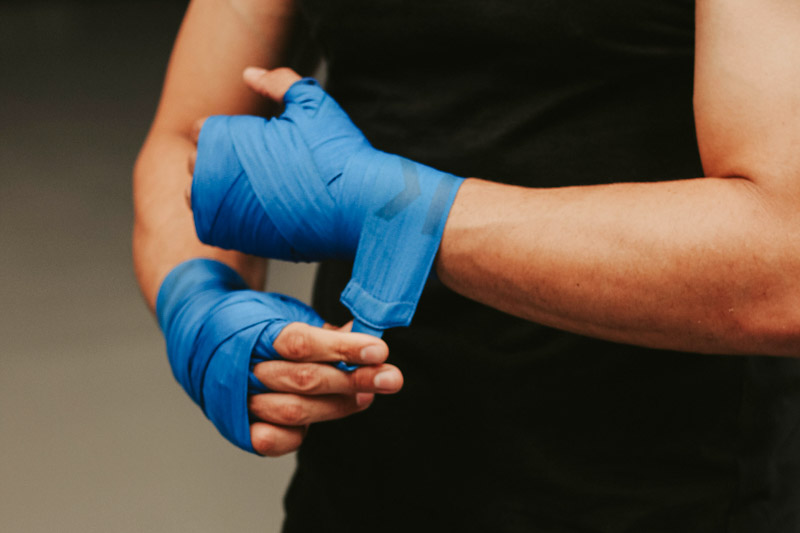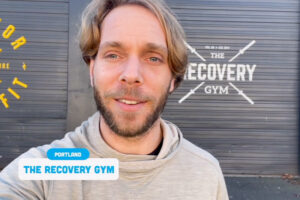Untroubling the Waters: Anger Management in Recovery
Everyone gets angry sometimes, but if anger is poisoning you, it's hurting your recovery. Here's how to let it out in a healthy way

Some people use substances to just kind of check out, emotionally. While most (OK, many) people are figuring out how to process small joys and tensions — and big love and trauma — their attention is elsewhere.
Then, in recovery, all the feelings come rushing in, and it’s easy to get blindsided. Any burst of intense distress can do it, but the perhaps clearest example is anger.
Why? Well, because virtually everyone gets angry. It’s normal, sometimes even appropriate, to be angry! But anger can become overwhelming or even overpowering, and enough of it can become poisonous to you or those around you. You may have figured this out. But many, many people, in recovery or not, do not learn how to handle, express and release anger in healthy ways.
Without a release valve for anger, you’re more likely to have a hard time dealing with frustration. Life brings frustration in spades, unfortunately, and it can lead to impulsive behaviors and harmful patterns such as violence, addiction or relapse (aka “recurrence of use”) in recovery.
Fortunately, learning that there are safe places and safe ways to voice, vent and/or scream your frustrations is the first step toward improving your behavioral responses. Adopting healthier coping mechanisms and daily practices that support your well-being can play a significant role in addiction and mental health recovery.
You can control your anger, or at least how you express it, so it doesn’t hurt you or others.
What Is Anger Management?
Anger management can be achieved in a group setting, with a therapist or by yourself. A specific style or a combination of anger management practices can help you shape your growth and healing journey.
Anger management can offer helpful techniques that support a healthier expression of your frustrations. Learning that there is no shame in expressing anger can improve your perspective. Anger can beat you up enough; you don’t need to beat yourself up more!
Anger management can also help you address problem behaviors that may exacerbate addiction issues. Getting ahead of your anger and other chronic, overwhelming emotions will make your recovery more manageable. Having strong feelings is a grand new experience for many in recovery, but it’s awfully tough if so many of them are negative.
Are You Saying I Need Anger Management?
Identifying if you need help with processing and expressing your anger in healthier ways takes time and practice. Seeking external resources for extra guidance never hurts.
It’s a personal choice whether or not to seek anger management services — or more accurately, it’s the personal choice of you and anyone close to you who has to deal with your anger issues. Consider these guidelines to help you determine if you’d benefit from more concentrated efforts to manage your anger.
Some of the potential signs that you may need anger management support include:
- Trouble managing or expressing your anger
- Experiencing frequent emotional outbursts
- Increasingly aggressive behavior
- Relying on substances to help you cope with your anger
- Fighting urges to use substances to help you cope with anger
- Changes in mood or perception that affect your daily life
- Relational conflict related to unhealthy displays of anger
Again, some anger is going to happen in life. But you’re in early recovery, it can be helpful to learn how to navigate the intensity that comes with it.
Constant anger is not only a risk to recovery. According to the National Library of Medicine, suppressing your anger can actually “amplify pain sensitivity by augmenting perception of the irritating and frustrating qualities” of your experience. Recent research has shown that repressing your anger can increase chronic stress while putting you at risk for heart disease and stroke.
Holding on to your anger makes your mind and body more sensitive to external factors that also irritate you. It’s as if the mind and body work together to force the ol’ suppressed anger out of you! So hopefully, you’re prepared to release it in a healthy way.
Navigating these mental and physical responses to anger can trigger some people in recovery to want to use again. Anger isn’t rational about that. Fortunately, there are techniques you can apply to improve your response to frustrating challenges. Identifying the right healing practices for you will decrease the impulsive urges that may arise when experiencing the discomfort that comes with anger.
What Are the Benefits of Anger Management?
Plentiful are the benefits of adding anger management practices to your routine! A few to entice you:
- Decreased stress
- Improved communication skills
- Improved relationships
- Greater sense of satisfaction
Expressing your anger in healthier ways benefits you and the people you share your days with. Freeing yourself to feel and express your anger more mindfully grants you the mental and emotional clarity for new thoughts and feelings.
Seeing anger as a messenger makes it easier to sit with your feelings and process them with wisdom and honesty. Honoring your anger in a balanced way allows you to advocate for yourself and get more of your needs met, improving your sense of self and satisfaction.
Developing better anger management skills can make living a more empowered and harmonious life easier. Essentially what you’re doing is allowing room for anger — but not allowing it to dominate you.
OK, How Do I Manage My Anger?
Learning how to express anger more mindfully takes willingness and effort. Anger is strong and raw, and if you’re in that figuring-things-out phase of recovery, you may not know quite where to put it. And let’s leave aside for now that many of us have grown up in a society where we don’t often see healthy expressions of most emotions, period.
So give yourself grace as you strive to improve your behavior. That will help you make the most of this experience.
Direct support with anger management via a counselor is a little more intensive than what you can learn through self-help platforms and resources. But if it’s what you need, it’s what you need. No shame.
There are, however, some simple, universal techniques that pretty much anyone can use to manage and express anger more effectively:
- Meditating: encourages self-awareness and new perspectives on stressful situations, while allowing you to be more present
- Journaling: helps you become more comfortable and familiar with your thoughts and feelings
- Movement or exercise: a powerful outlet for energy that helps calm anxiety
- Breathwork: helps you to become more present in your body, making it easier to identify the feelings you have
This is just a short and simple list to get you started on your anger management journey. Overall, think of anger management as a part of increasing your self-awareness and executing actionable plans for positive change. Or in other words — the recovery process.
More Lifestyle
The Definitive Guide to Sober Travel
Vacations shouldn't be nerve-racking, but in recovery, it's not always that simple. We asked three sober travel pros how to make your trips fun — and more fulfilling than ever.
Sure-Bet Sober Date Ideas
Ready to get back out there? Sober dating isn't so hard. But here are a few pointers anyway, to help you find your groove.
Sobriety Roundtable: What's Your Favorite Sober Activity?
From roller derby to CrossFit and dog fostering to splurging on Mexican, nine sober folks shared what they do for fun and fulfillment. Get some ideas for your own Dry January or longer-term sobriety!
The Joy of Baking (Sober)
Two months sober, Annie Zimmerman decided to make cookies. Now, her hobby turned passion yields fulfillment, connection and delicious soberversary cakes. Read the interview!
Now Elite NFL Players, They First Tackled Addiction | News Roundup
All Sober compiles the best of the latest headlines. Here's your addiction and recovery news for the week of Feb. 19, 2024!
All Sober in Chicago
A great town for recovery, come sun, rain or snow! Check out our video guide to the Windy City's best sober options for bars, bottle shops — and even an arcade with vintage games.
All Sober in New York
The Big Apple truly has it all — including a sober bar with a "witchy vibe" and an array of enchanting non-alc cocktails. Take a peek in our video guide to the sober city!
All Sober in Portland
Oregon's cultural capital may be weird and proud, but it's sober and proud too! We scoped out the coolest sober-friendly spots in our new video guide.










